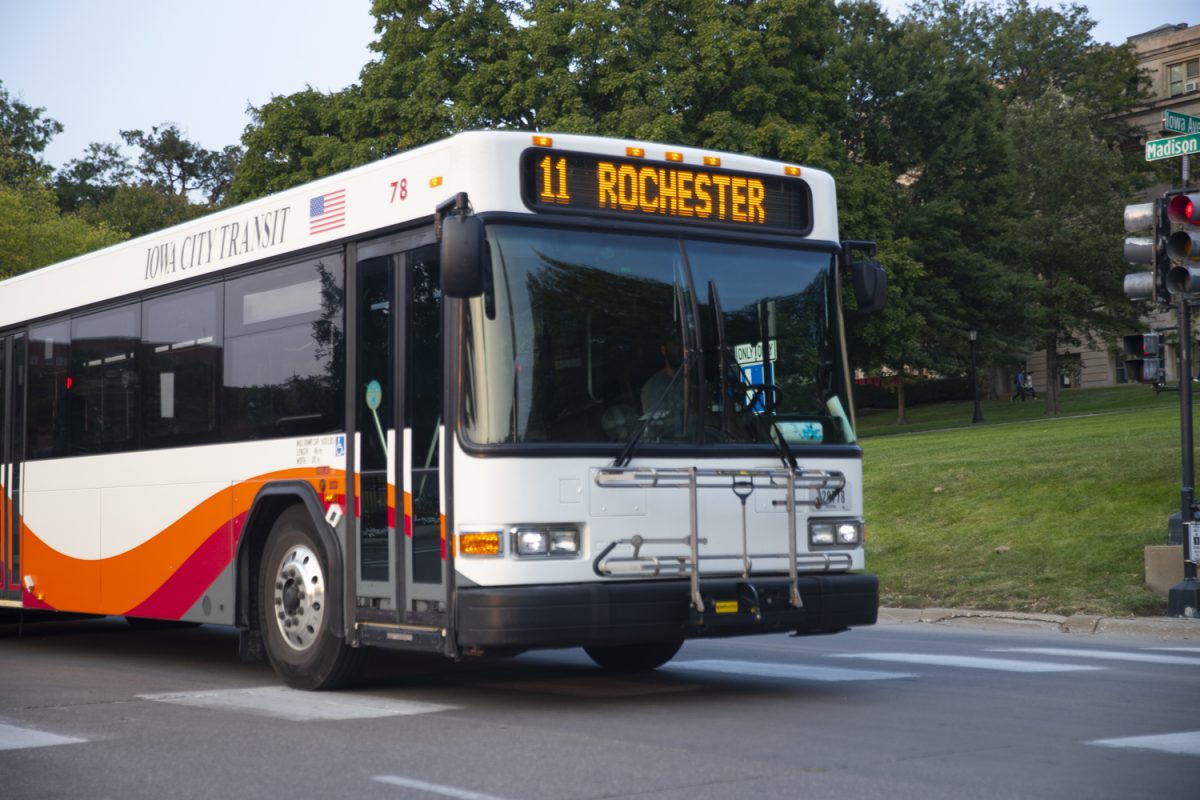The fare-free program has allowed 1.5 million rides in the last fiscal year. The program accommodates all 13 lines in the Iowa City area, which includes a network that runs to Coralville. Within a month of fare free transit, ridership rose by 50 percent, as reported by The Daily Iowan.
The pilot program launched in August 2023 and is expected to continue until August 2025. However, Iowa City plans to keep it running well past the original end date.
Iowa City Transit Director Darian Nagle-Gamm gave a presentation to the Iowa City City Council on Aug. 20 and said the fare-free program has been a whopping success.
Iowa City City Councilor Andrew Dunn said the City Council supports increasing ridership and continuing the fare-free program.
Nagle-Gamm also told the council about several improvements planned for the transit department in the coming years and how they are using different funding pools to maintain free busing for the city.
The city is planning a new transit facility and an expanded fleet of electric buses. Additionally, the department wants to see 1.9 million rides, or trips, per year by 2030, Nagle-Gamm said in an interview with the DI.
According to transit statistics presented to the council, the upgrades would mean an increase of approximately 60,000 rides per year until 2030.
Bus ridership dropped substantially in 2020 as a result of the COVID-19 pandemic. The resulting American Rescue Plan relief funding Iowa City received helped address the costs of the transit plans.
Nagle-Gamm said ridership has surpassed pre-pandemic levels. Federal funding, including a $23 million grant and pandemic relief money, has helped fund the fare-free program and will continue to do so for the next year. The increases in parking fares are one element expected to help cover the costs of fare-free once the allocated pandemic relief funding is expended.
Approximately $40 million will be allotted to construct the new transit facility by no later than 2027. The current Public Works campus on the corner of McCollister Boulevard and Gilbert Street is the facility’s proposed location, Nagle-Gamm said.
She also said the current facility is “past its usable life.”
Additionally, the transit department hopes to replace its diesel buses with electric buses, which cost around $1.5 million per bus, Nagle-Gamm said. The new facility would be based around a fleet of electric buses in hopes of reducing carbon emissions substantially by 2030.
The Iowa City City Council discussed avenues to tackle these projects with Nagle-Gamm during her presentation on Aug. 20.
Dunn said the council should be responsible for transit infrastructure in Iowa City, including investing in bus stops and benches. Dunn said this should not be the responsibility of independent groups, such as the Iowa City Democratic Socialists of America, a local chapter of a national organization. The DSA in Iowa City has a bench initiative that includes crafting benches for bus stops in Iowa City.
RELATED: Federal grant gives over $16 million to fund new electric campus buses
“It will require the council’s will to put real dollars into [transit] to improve routes and general service,” Dunn said.
Dunn also touched on funding, which he said incorporated the increase in parking fees, but he also said a potential utility tax, among other ideas, could be used to help the fare-free program continue.
Dunn said bus fares in Iowa City did not allow for profit in the transit system.
“The baselines of federal funding will still be there,” Dunn said.
During the city council work session on Aug. 20, Councilor Josh Moe addressed some of the possible funding opportunities the city has.
“Fare free is something the community wants. I hear about it all the time,” Moe said.
Moe said borrowing money from the funds going toward parking garages is likely not going to happen.
Additionally, Moe said he was in support of franchise fees on utilities, such as natural gas and electric power — a sentiment shared by Dunn.
Nagle-Gamm said federal funding to help transit agencies transition to electric technology will help the department’s plans going forward.
“It is a very interesting time to be in transportation because things are changing really rapidly,” Nagle-Gamm said. “It’s pretty amazing what can happen with the monumental leap forward in sustainability that’s happening.”



